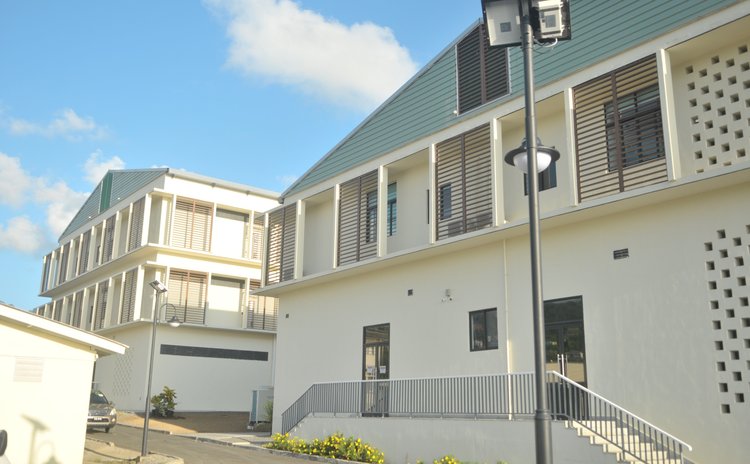More changes coming to Dominica China Friendship Hospital

A new facelift and change of name is not the only overdue change in the pipeline for Dominica's major trauma facility -the Dominica China Friendship Hospital.
If all goes as planned, the Government of Dominica will put before parliament for ratification of several new administrative amendments, which will take effect on July 1, 2021.
Within the major alterations is the Medical Bill, which forms part of the transformation and reform effort of the health services, and if approved, will ensure that professionals are registered and licensed and go through a process of continuous medical education.
Such legislation will seek to reform the legal framework governing the regulations of the profession while putting measures in place to allow for the establishment of the Dominica Medical Council, the registration and licensing of medical professionals, the regulations of their conduct and discipline, the prescription of qualification, approval of standards and requirement for continued education and training.
The Bill will also require medical professionals to be relicensed every two years through a process of prescribed continued medical education and will see the establishment of a complaint mechanism that will allow for investigations, discipline and appeals.
Another one of the contentious drafts is the Hospital Authority Bill which provides for the authority to be a corporate body. The functions are to promote the welfare of patients and the application of efficient and appropriate techniques systems and standards for the delivery of high-quality care.
With Dominica moving to achieve international accreditation within a reasonable framework, the Bill will also provide for the authority to be managed by a Board of Directors and a provision is also made at clause 24 for a Chief Executive Officer to be appointed under the recommendation of the board.
Other changes which will be made at the Former Princess Margaret Hospital (PMH) will be the appointment of the Director of Clinical Services whose main function will include monitoring of, and continuous improvement in all aspects of medical care.
It also caters for the appointment of directors, managers, specialists and consultants and other staff to provide functions of the authority.
Part four of the Bill deals with financial matters to ensure that funds and resources of the authority are accounted for openly and transparently, while part five provides for miscellaneous matters including the right of access by patients to their health records and confidentiality in patient matters.
Other Bills will include the Hospital Admitting Privileges Regulations Bill, which officials say has been prepared to make the distinction between services delivered in hospitals to public patients and private patients. The focus in these new regulations will be on public patients but will also be on the registration of private specialists who wish to use the hospital facilities to carry out surgical or other procedures on private patients.
The Pharmacy Bill will, among other things, provide for the establishment of a council to register and supervise the practices of pharmacy and the conduct and discipline of pharmacists.
A key change provision will be the registration of premises where pharmacies operate.
Two other bills are nearing completion following in-depth consultation with stakeholders. They are the Nursing Bill that will regulate the entire nursing profession and the Allied Health Professional Bill which deals with chiropractors, dental hygienists and homoeopaths, among others.




